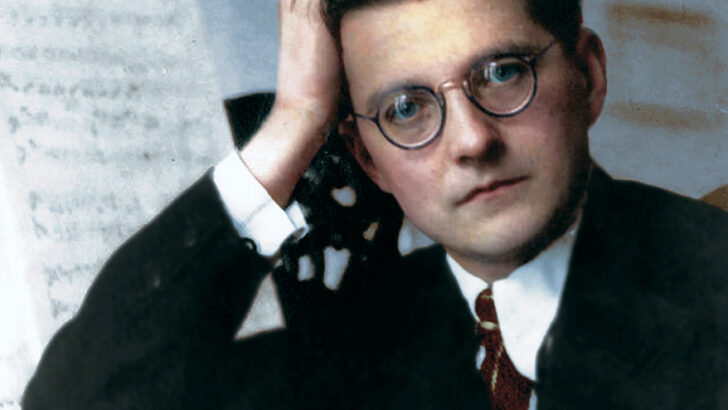The New Year 2025 and the following 2026 bring anniversaries appropriate to Russian composer Dmitri Shostakovich who was born in St Petersburg in 1906 and died in Moscow in 1975.
Commemorating these events two of his 15 symphonies have been slotted into the NCH January programmes. His 10th of 1953 had the National Youth Orchestra on its mettle last Saturday afternoon, January 4, while the NSO includes his 7th Symphony, subtitled Leningrad, in its concert on Friday January 17.
Shostakovich came from a relatively wealthy background with his father an engineer who hoped that Dmitri would follow in his footsteps. It was not to be. The young composer was 13 when he entered, with his mother’s blessing, the Petrograd conservatory. Here his teachers included Alexander Glazunov and Maximilian Steinberg, who was Rimsky-Korsakov’s son-in-law. Earlier Shostakovich had attended a private school where his classmates were described ‘as children of the elite of society’.
The post-revolutionary and post WWI periods in Russia found many artistic endeavours being severely deprived of money with the Shostakovich family strapped for cash. However, an appeal to the authorities for ration cards and funds was favourably received. It was during this time that Shostakovich developed tuberculosis and was sent to a sanatorium in the Crimea.
Shostakovich was a prolific composer in several genres including fifteen string quartets considered by many to be his most personal works. For a while his music was ‘approved’ by the Soviet authorities and found favour with dictator Josef Stalin.
Whatever about Stalin’s personal tastes in music, his First Five Year Plan was an iron hand fastened on Soviet culture. Music had to be in a direct and popular style with the avant-garde and jazz banned in 1932. Even the dead Tchaikovsky (d. 1893) fell out of favour due to his quasi-official status in Czarist Russia.
All went well until his opera Lady Macbeth of the Mtsensk District of 1934. Audiences and critics liked it but when Stalin attended a performance, he was aghast. Pravda, the official party newspaper, followed with a heading like ‘chaos not music’, backed his views. Shostakovich responded with his Fifth Symphony, which Pravda described as ‘a Soviet artist’s reply to just criticism’.
Another slap down for Shostakovich and other well-respected Soviet composers, Prokofiev among them, came in 1948. Shostakovich was dismissed from his posts in the Leningrad and Moscow conservatoires. Further difficulties arose with his 13th Symphony, subtitled Babi Yar, in which he set texts by the dissident poet Yevgeny Yevtushenko. His 14th Symphony, cast in a cycle of eleven movements on the subject of death, was far from the kind of work to appeal to Soviet officialdom.
Shostakovich destroyed almost all the letters he received, never kept a diary and was guarded in his conversations with family and friends. After years of declining health the composer died in Moscow on August 9 1975.
Shostakovich visited Ireland in June 1972 when he was the recipient of an honorary doctorate from TCD.



